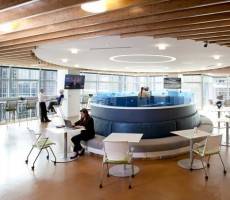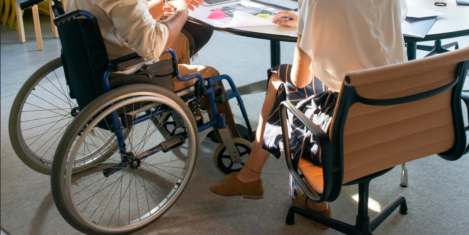September 26, 2014
HOK releases new workplace benchmarking report for financial services sector
 Architectural practice HOK has released a new benchmarking report that examines design and work-style trends at leading financial services firms over the past three years, including the finding that space is underutilised across the sector by nearly a half, meaning that growth can easily be accommodated within the existing facilities of many firms. The HOK Benchmarking Report claims to provide information on recent trends affecting the industry, an analysis of how organisations are using office space and metrics for space standards based on recently completed workplace projects for financial services firms in New York, Toronto and London. The authors claim that because ‘companies are eager to understand the link between their work environments and organisational performance, the space standards and findings in this report can provide a baseline to help corporate real estate and facilities professionals identify and respond to opportunities for improvement.’
Architectural practice HOK has released a new benchmarking report that examines design and work-style trends at leading financial services firms over the past three years, including the finding that space is underutilised across the sector by nearly a half, meaning that growth can easily be accommodated within the existing facilities of many firms. The HOK Benchmarking Report claims to provide information on recent trends affecting the industry, an analysis of how organisations are using office space and metrics for space standards based on recently completed workplace projects for financial services firms in New York, Toronto and London. The authors claim that because ‘companies are eager to understand the link between their work environments and organisational performance, the space standards and findings in this report can provide a baseline to help corporate real estate and facilities professionals identify and respond to opportunities for improvement.’


































March 5, 2015
The financial services sector leads the way in how we think about office design
by Charles Marks • Comment, Facilities management, Workplace design
(more…)